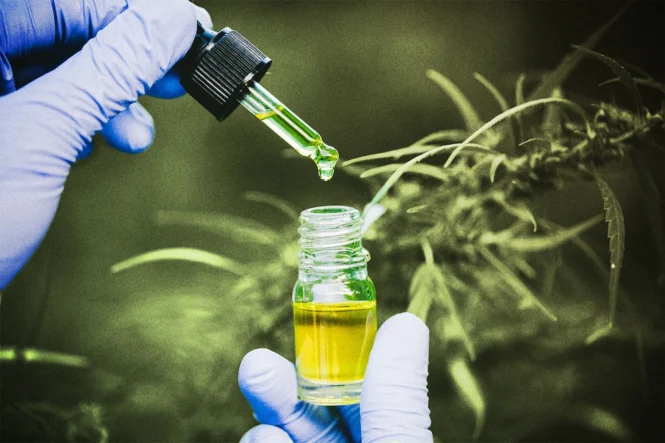In the rapidly evolving world of cannabis, innovation is a constant. Every day, new compounds, products, and legislation continue to redefine the industry. But in this ever-changing scenario, a particular cannabinoid, Tetrahydrocannabiphorol (THCP), is showing promising signs of revolutionizing the European cannabis landscape. As countries within the EU grapple with legalities surrounding cannabis, researchers are focusing more on THCP’s medical, recreational, and economic implications.
In this article, we will delve deep into what THCP is, how it differs from the more commonly known THC, its legal standing in Europe, and its potential impact on the European cannabis industry.
What is THCP?
Tetrahydrocannabiphorol, or THCP, is a cannabinoid compound found in the cannabis plant, similar to THC (tetrahydrocannabinol) and CBD (cannabidiol). Like THC, it binds to the CB1 receptors in the brain, producing psychoactive effects. However, preliminary studies suggest that THCP could be many times more potent than THC. The exact extent of its potency and its complete range of effects are still under investigation, but initial findings indicate that THCP could offer unique advantages over other cannabinoids.
How Does THCP Differ from THC?

Both THC and THCP are psychoactive compounds that interact with the endocannabinoid system in humans. While they share many similarities, THCP is considered to be significantly more potent, although the research is still in its infancy. The molecular structure of THCP is slightly different, allowing it to bind more efficiently to the CB1 receptors in the brain. This efficient binding is believed to be responsible for the compound’s increased potency.
Because of this distinct molecular difference, THCP might offer new avenues in medical treatment, perhaps providing relief for conditions that are less responsive to THC or CBD. However, it’s important to note that much of this is still theoretical, and extensive research is required to confirm these hypotheses.
The Legal Status of THCP in Europe
The legal standing of cannabis compounds varies widely across Europe, complicating the matter for cannabinoids like THCP. While some countries like the Netherlands have a relatively relaxed approach to cannabis, others like France and Sweden impose stricter restrictions.
The European Union itself does not yet have a unified policy on cannabis or cannabinoids, and there is no specific legislation targeting THCP. This lack of regulation offers both an opportunity and a challenge. On one hand, it provides a window for scientific exploration and commercial exploitation. On the other, the absence of guidelines makes it difficult for businesses to operate in a transparent and consistent manner.
Economic Implications

Given the increasing interest in cannabis for both medical and recreational use in Europe, THCP presents a significant economic opportunity. The compound’s unique properties could allow for specialized products, targeting consumers interested in more potent effects or specific medical applications. Moreover, the European cannabis market is already booming; introducing a novel, effective compound could add fuel to this fire.
The production and sale of THCP-based products could offer a significant boost to the European economy, generating new jobs and tax revenues. Furthermore, the scientific research surrounding THCP could attract global attention, positioning Europe as a leader in cannabinoid research.
Medical Potential
One of the most exciting prospects of THCP is its potential medical applications. Preliminary research suggests that the compound could offer benefits similar to THC but with greater effectiveness. Conditions like chronic pain, epilepsy, and multiple sclerosis, already often treated with medical cannabis, could see improved outcomes with THCP-based treatments.
However, more research is needed, particularly clinical trials involving human subjects, to fully understand the medical capabilities of THCP.
Social and Cultural Impact

Beyond the economic and medical facets, THCP could have a substantial impact on European society and culture. The compound’s increased potency could redefine recreational cannabis use, potentially leading to a shift in public perception and cultural acceptance. The introduction of THCP might encourage more conversations about harm reduction, responsible use, and the de-stigmatization of cannabis.
Challenges and Considerations
While the prospects are promising, there are challenges to consider. Regulatory uncertainties, the need for comprehensive research, and public opinion are all factors that could affect the adoption and commercialization of THCP. As with any new substance, there’s also the question of safety, which will require rigorous scientific investigation.
Conclusion
THCP is a burgeoning cannabinoid with the potential to transform the European cannabis landscape. Its unique molecular structure, greater potency compared to THC, and its still largely untapped economic and medical potential make it a fascinating subject for researchers, policymakers, and entrepreneurs alike. As Europe gradually shifts toward a more liberal stance on cannabis, THCP could find itself at the forefront of a new wave of innovation and acceptance.
If you’re interested in getting into the business of THCP products or are a consumer eager to try the next big thing in cannabis, keep an eye on this space. The future of THCP in Europe looks promising, and you wouldn’t want to miss out on this emerging market.
If you are interested in selling THCP products, make sure to visit our website for more information. https://sotheros.com/
 Imagup General Magazine 2024
Imagup General Magazine 2024



